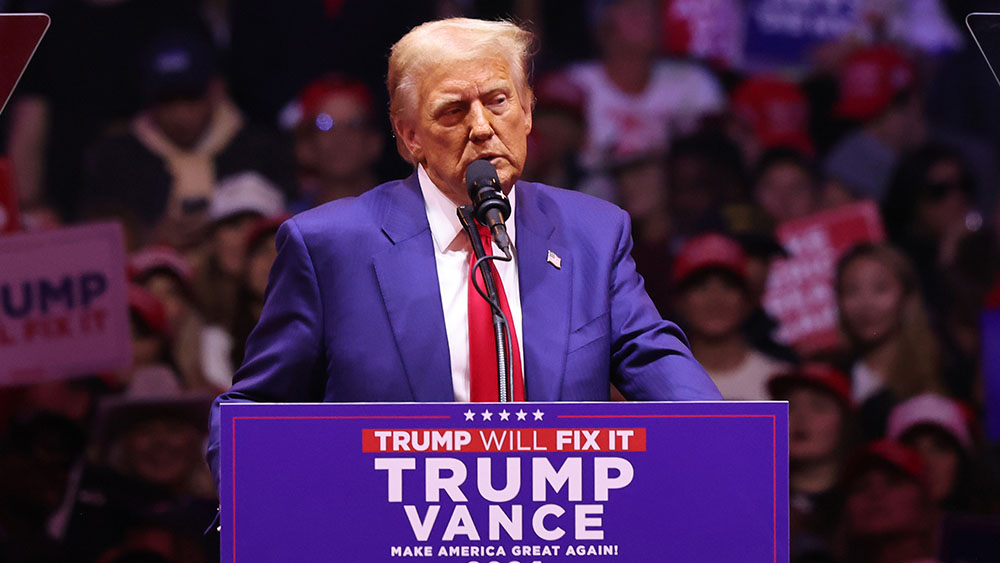
- California Attorney General Rob Bonta issues directives to state agencies to resist Trump’s mass deportation plans.
- Bonta’s actions are based on California’s 2017 “California Values Act,” limiting local involvement in federal immigration enforcement.
- Critics, including former House Speaker Kevin McCarthy, argue Bonta’s policies attract illegal immigration and strain California’s finances.
- A CBS News/YouGov poll shows 57% of Americans support mass deportations, contrasting Bonta’s stance.
- The clash between state and federal immigration policies is expected to escalate under Trump’s presidency.
California Attorney General Rob Bonta is doubling down on his resistance to President-elect Donald Trump’s immigration policies, despite the fact that more than half of Americans voted for Trump in the 2024 election and presumably support his stance on illegal immigration. Bonta’s defiance, outlined in new guidelines issued to state agencies, underscores a growing divide between blue states and the federal government on immigration enforcement.
Bonta’s defiance a direct challenge to Trump’s agenda
Last week, Bonta issued a set of directives to courthouses, healthcare facilities, schools, and other state-run institutions instructing them to adopt policies that resist Trump’s proposed mass deportations. The guidelines, described by Bonta as a defense of California’s immigrant communities, prohibit the collection or disclosure of information that could reveal an individual’s immigration status. They also mandate that federal immigration officials be directed to a designated state representative when seeking access to these facilities.
Bonta’s actions are rooted in the state's 2017 “California Values Act,” which limits state and local law enforcement’s involvement in federal immigration enforcement. The attorney general has framed his efforts as a safeguard against what he calls Trump’s “draconian” and “xenophobic” agenda, which he claims would create a culture of fear among immigrants.
However, Bonta’s stance flies in the face of widespread voter sentiment. A CBS News/YouGov poll conducted shortly after the 2024 election found that 57% of Americans supported a mass deportation plan, compared to just 43% who opposed it. Trump’s victory, in part, was fueled by concerns over illegal immigration and its associated costs, including crime and fiscal strain.
McCarthy criticizes Bonta’s political stunt
Former House Speaker Kevin McCarthy has been vocal in his criticism of Bonta’s actions, accusing the attorney general of prioritizing political posturing over the needs of California residents. McCarthy argues that Bonta’s policies are making California a “magnet” for illegal immigration, costing taxpayers billions of dollars annually.
“He’ll give them free healthcare,” McCarthy said, noting that California’s generous benefits for undocumented immigrants come at the expense of legal residents. “He denies California citizens certain things, but not to those who come illegally. That’s why we attract so many, and it’s costing a great deal.”
California’s fiscal woes are well-documented. The state is projected to face a $68 billion deficit in 2024-25, a figure that McCarthy blames in part on the costs associated with illegal immigration. Despite this, Bonta has dismissed concerns about fiscal responsibility, calling Trump’s deportation plan “irresponsible” while praising immigrants as “the backbone of our nation.”
McCarthy also accused Bonta of ignoring the will of the people, pointing to the 2024 election results as evidence that immigration was a top concern for voters across party lines.
“These attorneys general should take a deep breath, listen to what the American public said, and understand that immigration was one of the major reasons why Donald Trump won,” McCarthy said. “It wasn’t just a Republican issue—it was Republican and Democrat too.”
Bonta’s resistance to Trump’s immigration policies raises questions about the role of state attorneys general in enforcing federal law. While Bonta frames his actions as a defense of immigrant rights, critics argue that his policies undermine public safety and ignore the economic and social costs of illegal immigration.
McCarthy’s frustration is shared by many Americans who are tired of the problems associated with illegal immigration, including crime, overcrowded schools, and strained healthcare systems. Trump’s election victory was a clear signal that voters want action on these issues, yet Bonta and other Democratic leaders appear determined to resist.
As Trump prepares to take office, the clash between federal and state authorities on immigration enforcement is likely to escalate. Bonta’s defiance sets the stage for costly legal battles and further division, even as the majority of Americans call for stronger action on illegal immigration.
Sources for this article include:
Please contact us for more information.






















